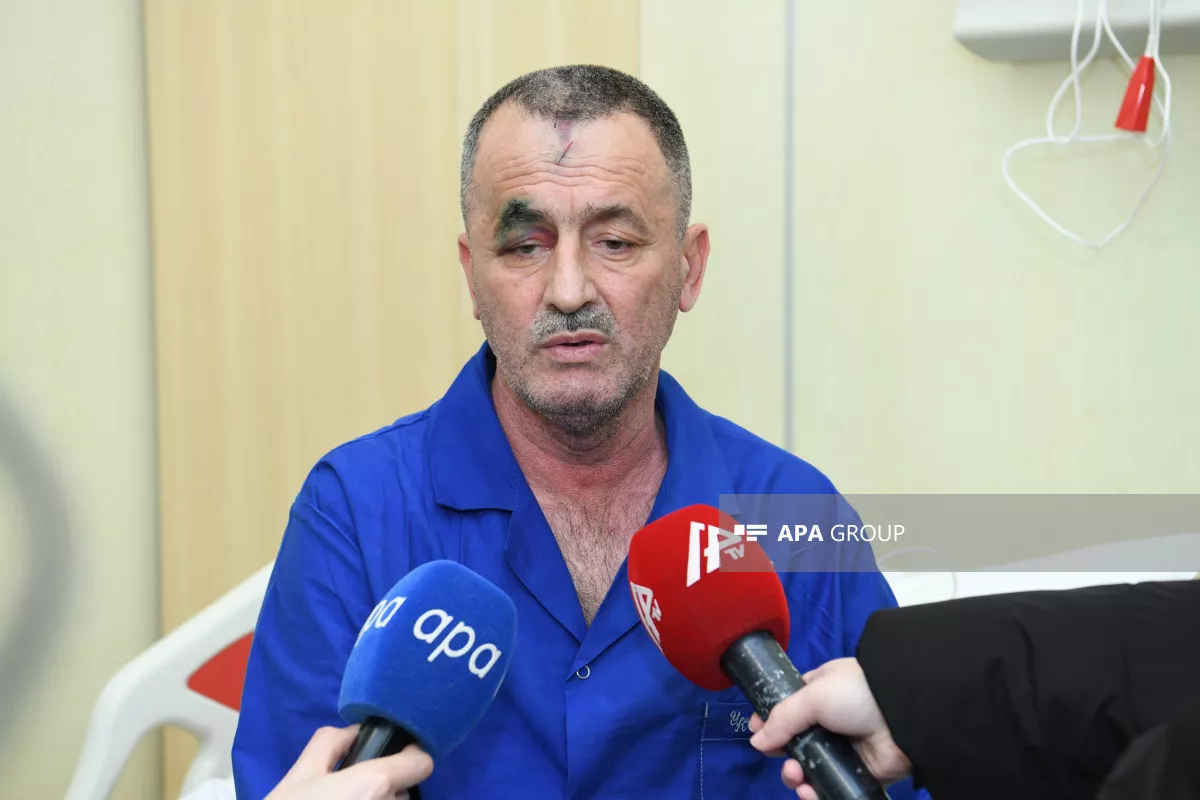Azerbaijan's honoured pilot debunks gas cylinder blast theory in fatal AZAL crash
Following the tragic crash of an Azerbaijan Airlines (AZAL) plane on December 25 near Aktau, Kazakhstan, a number of theories have emerged regarding the cause of the disaster.
One of the most prominent claims involves the explosion of a gas cylinder in the aircraft's cabin.
However, experts, including the Honoured Pilot of Azerbaijan Tair Agaguliyev and surviving steward Zulfugar Asadov, have strongly rejected this version of events, calling it both unfounded and absurd.
Agaguliyev, who is well-versed in aviation matters, criticized the suggestion that an oxygen cylinder caused the crash, emphasizing that the oxygen cylinder on board was meant for passenger safety in case of emergency and could not have exploded.
“The oxygen cylinder is used in case of any problems so that passengers can breathe comfortably. They write that the cylinder exploded. This is excluded,” Agaguliyev told local media, per Caliber.Az.
Instead, Agaguliyev believes that the aircraft was struck by missile fragments. He explained that these fragments damaged the hydraulic system of the plane, which controls the steering. “The aircraft's steering wheel has hydraulic control,” Agaguliyev added.
Regarding the deployment of the oxygen masks, Agaguliyev clarified that this happens only when there is a breach in the cabin’s airtightness, which he attributed to the external missile impact. “The missile itself did not hit the aircraft; the aircraft was hit by fragments. The missile exploded about 10 meters away from the aircraft before reaching it. And the question of the cylinder is nonsense, absurd. They simply have nothing to say, they don’t know how to ‘get away with it,’” he remarked.
Zulfugar Asadov, one of the surviving crew members from the ill-fated flight, also dismissed the theory of a gas cylinder explosion.

“The version about the explosion of a gas cylinder in the cabin of the aircraft is unthinkable and false,” Asadov said.
He further explained that if such an explosion had occurred, the plane would have been completely destroyed. “It is impossible to carry a gas cylinder into the cabin of an aircraft. All luggage, including hand luggage, is checked at the airport,” he noted.
Asadov, who was injured during the crash, confirmed that the plane was struck from outside, and a foreign object entering the cabin caused his injury. "Something hit the aircraft and a foreign body that entered the cabin from outside injured my arm,” he recounted.
Despite the spreading narrative about the gas cylinder explosion, primarily pushed by media outlets in Russia and other countries, both Agaguliyev and Asadov firmly reject this theory, standing by the belief that the crash was caused by an external missile impact.
The AZAL plane, en route from Baku to Grozny, crashed near Aktau, Kazakhstan, on December 25. The plane was carrying 62 passengers and five crew members, with 38 confirmed fatalities and 29 survivors.
By Tamilla Hasanova








